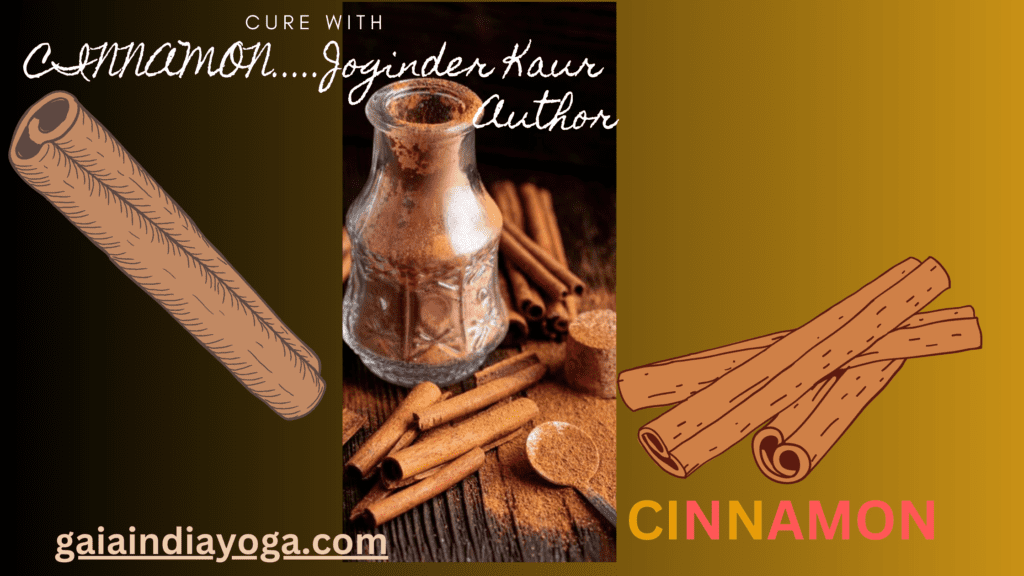Which Types of Cinnamon? More Beneficial
Healing With Herbs
IS CINNAMON HEALTHY FOR BABIES?
CINNAMON
WHEN CAN BABIES HAVE CINNAMON?
HOW TO KNOW YOUR CINNAMON?
IN THIS ARTICLE –

INTRODUCTION
TYPES OF CINNAMON
HOW TO KNOW YOUR CINNAMON?
IS CINNAMON A COMMON CHOKING HAZARD FOR BABIES?
IS CINNAMON HEALTHY FOR BABIES?
BENEFITS OF CINNAMON
CONCLUSION

INTRODUCTION –
Cinnamon is a common ingredient for colds ,flatulence ,nausea,and vomiting.
It’s also useful for settling an upset stomach and for alleviating diarrhea.
Cinnamon has also been used as a treatment to stimulate the appetites of anorexics.
TYPES OF CINNAMON –
1.Cinnamon verum (Ceylon Cinnamon)
2.Cinnamon burmannii (Korintje Cinnamon)
3.Cinnamon cassia (Saigon Cinnamon)
4.Cinnamon loureiroi (Royal Cinnamon)

Cinnamon is separated into two main categories – cassia cinnamon and Ceylon cinnamon. Cinnamon is a powerful, health-promoting ingredient that may help with everything.
A. Cassia cinnamon, which is produced in China, Vietnam, and Indonesia, is the type most commonly sold in the United States and Canada. The majority of cinnamon in the American market is cassia cinnamon.
B. Ceylon Cinnamon, which is produced in Sri Lanka, India, Madagascar, Brazil, and the Caribbean, is known as “true” cinnamon and has a more subtle flavor.While both are harvested in sheets found beneath the bark of trees belonging to the same scientific family, they produce distinctly different products. The two types of cinnamon are differentiated by the way they are harvested, their taste, their smell, and the chemical compounds found within them. Let’s start with the most commonly available version: cassia cinnamon.
Cassia cinnamon is what you probably know as cinnamon, the ground red-brown powder. Cassia cinnamon is rougher in texture, darker in colour, and rolled in thicker sheets than Ceylon cinnamon.
There are three specific types of cassia cinnamon—Indonesian, Chinese, and Saigon—all with different levels of flavor and situations that they are best suited for. Indonesian cassia is the sweetest and most mild of the cassia cinnamon, and is the most common in America. Chinese cassia, on the other hand has a strong, bitter flavor. Chinese cassia isn’t as common in the States, and is mainly used medicinally in China. And then there’s Saigon cassia, which is intensely fragrant and flavorful, almost spicy, and generally our preferred cassia variety.
Now, let’s talk about Ceylon cinnamon, a variety sometimes referred to “true” cinnamon” and native to Sri Lanka. If you ask us, this is the good stuff, and like most good things, it’s a little more expensive and a little harder to find.
When Ceylon cinnamon is harvested, the sheets that are taken from the tree are usually processed by hand and rolled into flat layers that are much thinner and finer in texture than those rolled from cassia cinnamon.
Some people will tell you that that cassia cinnamon is “fake” cinnamon and Ceylon cinnamon is real cinnamon. This is not true. They are both real types of cinnamon, but we’re inclined to think that Ceylon is a higher quality spice across the board. Using cassia cinnamon is totally fine, but Ceylon cinnamon is definitely worth.

HOW TO KNOW YOUR CINNAMON?
Not sure if a cinnamon is Cassia or Ceylon? Look at the fine print on the label to see if there is a country of origin. Cinnamon from China, Indonesia, and Vietnam is most likely cassia while cinnamon from “Sri Lanka” is most likely the Ceylon variety. Mexican cinnamon is often also the prized Ceylon. If the country is not identified, look at the colour. Ceylon cinnamon is bronze and noticeably lighter than cassia, which is rustier. The structure of the sticks can also be a clue: Ceylon sticks contain laminated rolls of thin bark, while cassia sticks are thicker with typically just one curled layer.
When can babies have cinnamon?
Cinnamon may be introduced as soon as your baby is generally around SIX months. Cinnamon can cause a harmless rash on skin that it touches, such as near baby’s mouth. Also, inhaling cinnamon powder can also trigger a significant cough reflex and even cause inflammation inside the lungs.

Is cinnamon a common choking hazard for babies?
No. However, cinnamon is often used to flavor hard fruits, which are choking hazards when served raw.
Is cinnamon healthy for babies?
Yes—in moderation. Just a pinch is enough to add a layer of flavor! It also offers trace amounts of fibre, iron, calcium, manganese, and vitamin K. It may even have antimicrobial, anti-parasitic, and antioxidant effects on the body.
BENEFITS OF CINNAMON –
Cinnamon can lower blood sugar, who have diabetes?
Despite many studies, it isn’t clear whether cinnamon helps lower blood sugar in people with diabetes. Some studies of cinnamon have shown a benefit. Others haven’t.
Many of those research studies included different doses and different types of cinnamon. That makes it hard to compare the results. It’s possible that cinnamon might help the body use insulin more efficiently.
BENEFITS –
1.Rich in Antioxidants

Cinnamon is a powerful antioxidant. In fact, it contains more antioxidants than garlic and oregano. These substances shield the body from free radicals that cause oxidative stress, which occurs when the body cannot detoxify all the damaging free radicals building up. Antioxidants can help prevent the negative impact excess free radicals can have on the immune system. Also it help you to weight loss.
2. Anti-Inflammatory
The antioxidants and polyphenols in cinnamon also possess anti-inflammatory properties. Under normal circumstances, inflammation helps the body repair tissue damage and fight infections. However, in some cases, swelling can work against the tissues or become chronic over an extended period. Conditions and events that cause inflammation can lead to chronic pain. Cinnamon is particularly good for inflammation of the liver.
3.Reduces the Risk Of Heart Disease
Heart disease is the number one cause of premature death. Cinnamon can reduce bad LDL cholesterol and triglycerides, helping good HDL cholesterol remain stable in the body. It can also help reduce blood pressure, showing positive effects on blood markers. Cinnamon can improve insulin resistance, blood glucose, and lipid metabolism, and reduce oxidative stress. All of this helps lower the risk of heart disease.
4.Combats Bacterial Infections
Cinnamon’s main, active ingredient is cinnamaldehyde; oils made using this ingredient can help treat ailments from respiratory tract infections to the flu. Cinnamon is effective against gram-negative and gram-positive bacteria. It can help protect the body from digestive symptoms and the common cold and offers a boost to the immune system. Cinnamon extract, along with clove, may also stop the growth of bacteria that cause infections such as salmonella and listeria.
5.Fights Diabetes
Diabetes develops when the body forms a resistance to insulin or cannot properly limit glucose from entering the bloodstream. Cinnamon can help improve sensitivity to insulin and lower blood sugar levels. It may also improve metabolism, which can help the pancreas work better. The spice can also block the enzyme alanine, which allows the absorption of glucose into the blood. Alanine a crystalline amono acid that occurs in many proteins.
6.Defends Against Neurological Disorders
Many people experience cognitive decline in brain function as they age. Alzheimer’s and Parkinson’s diseases are two neurological disorders that occur through cell mutation. Compounds in the spice stop the build-up of tau, a protein that is a staple of Alzheimer’s disease. In regards to Parkinson’s disease, cinnamon helps improve motor functions, normalizes neurotransmitter levels, and protect neurons.
7. Lowers Cancer Risk
In addition to its bacteria-fighting properties, cinnamaldehyde can inhibit cancerous tumour growth by protecting DNA from damage and cell mutation. This particular compound also promotes cell apoptosis or the self-destruction of cancerous cells. The compound is found to be particularly potent in treating colon cancer.
8.Freshens Breath and Promotes Dental Health
Bacteria in the mouth can cause bad breath, cavities, and tooth decay, along with other oral infections. Cinnamon extracts and oils naturally combat these ongoing issues by fighting oral microflora and microbiome. Since cinnamon has antimicrobial and anti-inflammatory properties, it can help prevent dental decay. Cinnamon can aggravate open mouth sores, however, so it should be used with caution.
9.Prevents and Cures Candida
Cinnamon not only protects against bacterial and viral infections but fungal ones, too. For example, the spice can help avoid and treat Candida in the digestive tract. One study shows the spice can help lower the amount of candida albicans, the dangerous yeast that can lead to digestive problems. Cinnamon can help inhibit yeast growth, making it a good preventive supplement.
10.Helps Treat HIV
Cinnamon’s effect against viral infections is evident in preliminary test tube labs researching natural treatments for human immunodeficiency virus or HIV. Cinnamon’s high concentration of antioxidants and anti-inflammatory could one day help people manage the virus. A few studies suggest cinnamon may have an inhibitory effect on the virus’ entry into human cells. More research is needed, but cinnamon shows some promise as a natural medicine for HIV.
11. Promotes Healthy Skin
Adding cinnamon oil to a carrier such as coconut oil can allow the antibiotic and antimicrobial properties to help improve the skin and complexion. Using this oil topically can decrease the prevalence of rashes, irritations, infections, and allergic reactions. The oil helps reduce inflammation, pain, redness, and swelling. Mixed with honey, cinnamon and be used as a face mask to fight acne and rosacea. Never apply undiluted cinnamon or any essential oil directly, however, as it can burn the skin.
12. Helps Allergies
A wide range of factors cause allergies, and inflammation plays a large role in many allergies. For this reason, cinnamon and its anti-inflammatory properties can help ease the influx of histamine that causes many allergic reactions. People with asthma can also benefit from cinnamon — the same properties help reduce symptoms and attacks.

Cinnamon sticks added to hot tea is particularly effective.
13.Cinnamon may keep your brain healthy and your memory sharp.
Cinnamon always make your memory sharp and keep your brain healthy.
14.Cinnamon may lower cholesterol and blood pressure.
Cinnamon help to reduce your cholesterol and blood pressure.
CONCLUSION
Cinnamon should not be substituted for medicine, but that doesn’t mean it may not have medicinal properties. It’s been used for thousands of years and is a tasty addition to various foods. Adding cinnamon to your diet may offer some health benefits due to certain plant-based compounds with anti-inflammatory and antioxidant properties.
Author : Joginder Kaur

